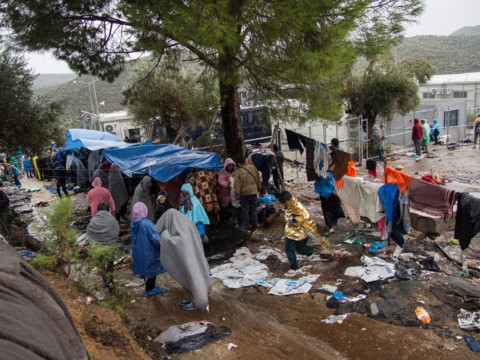[ad_1]

MEPs spearheading EU-wide asylum reforms predict a deadlock with member states – casting doubt on the future of the much touted new pact from the European Commission.
German socialist Birgit Sippel and Dutch Green Tineke Strik said EU countries are already trying to water down some of the proposals.
“To be honest, unfortunately, I don’t see that we will proceed very fast,” said Sippel on Thursday (18 March), speaking at a conference organised by the international NGO Oxfam.
As co-legislator, the European Parliament must reach an internal agreement before starting talks with EU states. Domestic capitals are also formulating their own positions, while keeping the public in the dark as internal talks continue.
Sippel’s comment follows years of bickering among member states of past and failed asylum reform efforts under the previous European Commission.
The European Commission under president Ursula von der Leyen has since proposed a new package, outlined last September. It includes a number of different laws.
One of those, known as the screening regulation, seeks to fast-track potential asylum applicants arriving at the border within a matter of days.
But critics say it may end up creating massive detention centres, echoing repeats of the ghetto-like encampments found on the Greek island of Lesbos or the Calais jungle in France.
Greece, Italy, Malta, and Spain fear the same, noting the proposed reforms could lead to “large closed centres at the external borders.”
Sippel, who is the European Parliament’s lead on the regulation, has come to the same conclusion.
“I am not sure about the true added value of the screening regulation,” she said, adding that the text contains “loopholes”.
‘No eyes and ears’
The regulation also includes plans to set up an independent monitor to ensure fundamental rights are respected.
Such monitors would then be tasked to prevent any illegal pushbacks of prospective asylum seekers, an issue that has implicated the EU’s border agency Frontex in numerous allegations.
But member states appear to be very much opposed to the idea, said Strik.
“I already hear that member states really really don’t like this provision at all,” she said, speaking at the same event.
“I am not very optimistic in the end that we will have an independent and effective monitoring mechanism on the basis of this proposal,” she added.
The European Commission’s plan requires the monitors be placed during the screening process. But this happens at official crossing points.
Strik pointed out that pushbacks don’t take place at official crossing points but in places “where there are no eyes and ears”.
She therefore wants to expand the scope of the monitors to include all border areas.
It is a point that EU states are unlikely to agree on. “It may indeed even be the case that we will face a deadlock in the end,” she said.
[ad_2]
Source link